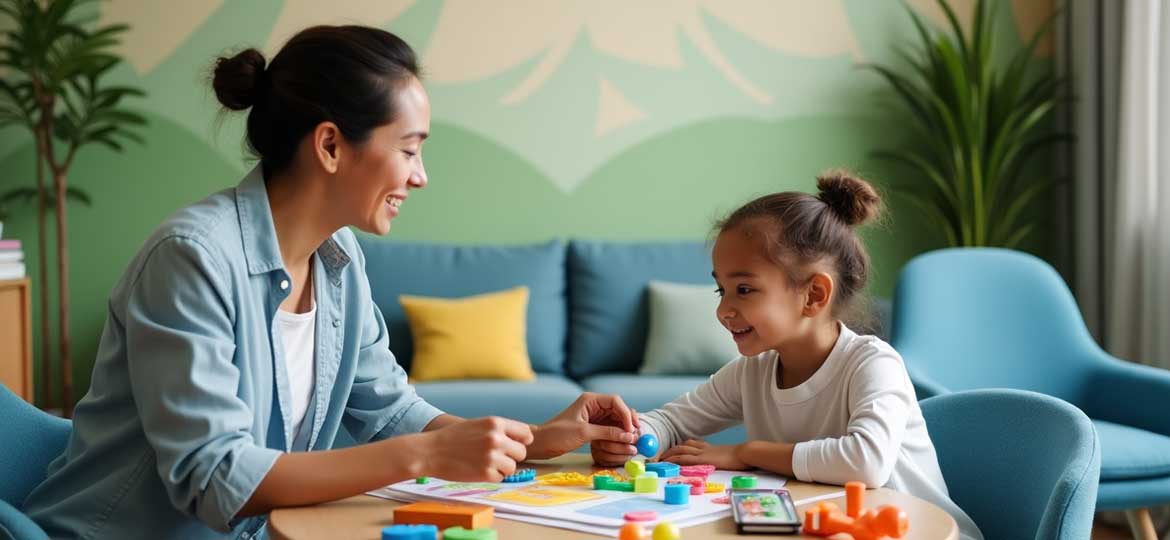Calgary ADHD Counselling and Therapy: Empowering Individuals to Thrive

At our Calgary Psychologist Clinic, our therapists specialize in providing ADHD therapy to individuals of all ages. Attention-deficit/hyperactivity disorder (ADHD) can present unique challenges in daily life, impacting attention span, impulse control, and organizational skills. Our tailored ADHD therapy aims to empower individuals to manage their symptoms effectively and improve their overall functioning.
Our Calgary Psychologists Providing ADHD Therapy and Counselling
Dr. Raheleh Tarani
Registered Provisional Psychologist
English, Farsi, Japanese (basic), Hindi, Turkish, Punjabi, Urdu
Andrea Krygier
Registered Psychologist
English, Spanish
Nav Gill
Registered Provisional Psychologist / Clinical Counsellor
English, Punjabi
Preeti Rakhra
Registered Provisional Psychologist
English, Hindi
Murray Molohon
Registered Psychologist
English
Jarret Verwimp
Clinical Canadian Certified Counsellor
English, French, Spanish (basic)
Understanding ADHD Counselling
ADHD therapy involves a combination of evidence-based techniques and interventions designed to address the core symptoms of ADHD and improve overall functioning. Our psychologists utilize a collaborative and supportive approach, working closely with clients to develop personalized treatment plans.
Comprehensive Assessment and Diagnosis
In addition to ADHD therapy, we offer formal ADHD assessment services. These are often important for students as a formal assessment and diagnosis can lead to academic accommodations.
Key Components of ADHD Therapy
Psychoeducation:
Education about ADHD is a fundamental aspect of therapy. We provide individuals with comprehensive information about ADHD, its symptoms, and its impact on daily life. This knowledge empowers clients to better understand their condition and implement effective coping strategies.
Cognitive-Behavioral Therapy (CBT):
CBT is a primary therapeutic approach used in ADHD therapy. It focuses on identifying and modifying negative thoughts, emotions, and behaviors associated with ADHD. Through CBT, clients learn practical skills to improve attention, impulse control, and organizational abilities.
Coaching:
Coaching provides personalized support and guidance in implementing strategies and making positive changes. Our coaches work collaboratively with clients to develop effective systems for organization, time management, and task completion. This proactive approach helps clients optimize productivity and reduce feelings of overwhelm.
Family Therapy:
For children and adolescents with ADHD, family therapy can be beneficial. It aims to improve communication, understanding, and support within the family system. By involving parents and siblings in therapy sessions, we help families develop strategies to support the individual with ADHD and enhance overall family functioning.
Empowering Growth and Well-being
Our goal is to empower individuals with ADHD to thrive in all aspects of their lives. Whether you’re seeking formal assessment or focused on addressing specific challenges, our therapists are here to support you every step of the way. Take control of your ADHD journey and reach out to us for personalized therapy sessions tailored to your needs.
ADHD Therapy Methods That Actually Work: Evidence-Based Counseling Results

ADHD affects 366 million adults worldwide, and 60 to 86 percent of childhood cases continue into adulthood. The evolution of ADHD therapy has been substantial, yet finding the right treatment remains a vital concern. This becomes even more challenging because two-thirds of people with ADHD also deal with conditions like anxiety and depression.
New studies show that certain therapeutic approaches work remarkably well to manage ADHD symptoms. Cognitive-behavioral therapy stands out as the gold standard ADHD treatment, delivering moderate to substantial improvements in symptom management. The results also highlight how mindfulness-based cognitive therapy and dialectical behavioral therapy help people enhance their executive functioning and emotional regulation.
Understanding Evidence-Based ADHD Therapy
Evidence-based ADHD therapy is a systematic approach to treatment that scientific research and documented outcomes support. Studies show that between 70-80% of children have fewer ADHD symptoms with evidence-based treatments [1].
Definition and importance of evidence-based approaches
Evidence-based psychological treatment includes interventions that researchers have extensively studied to verify their effectiveness. Research shows that patients get the best results when they combine medication with evidence-based psychological treatment [2]. Behavioral therapy has proven to be one of the most successful evidence-based interventions. It shows statistically significant effects in managing ADHD symptoms [3].
Key differences from traditional therapy methods
Modern evidence-based ADHD therapy is different from traditional approaches in several ways:
Focuses on measurable outcomes and symptom improvement
Incorporates parent training programs with documented success rates
Emphasizes behavioral interventions in multiple settings
Employs structured treatment protocols
Role of scientific research in ADHD treatment
Scientific research drives the development of effective ADHD treatments. A complete review analyzing 550 studies shows strong evidence for both medications and psychosocial approaches [4]. Behavioral therapy emerged as the only non-pharmacological intervention that shows statistically significant effects in ADHD management [3].
Recent studies show that removing artificial food colors and adding fatty acid supplements can reduce ADHD symptoms [3]. Physical exercise interventions, particularly aerobic activities, help target cognitive symptoms effectively [3].
Age-Specific ADHD Therapy Solutions
ADHD treatment methods vary significantly by age. Research shows different success rates at various life stages. For children under 6 years, behavioral therapy is the main treatment method [5].
Child-focused therapy techniques
Young children respond best to behavioral therapy combined with parent training. Studies show that behavioral therapy plans should include:
Structured time management and routines
Positive reinforcement systems
Trigger identification and management
Social skills development through play therapy
Adolescent treatment strategies
Teen ADHD needs a different approach. Studies show that 80% of children who needed medication still need it during their teenage years [6]. The most effective teen treatments combine medication with behavioral interventions [7]. Research shows teens with ADHD face two to four times higher risk of car accidents. Therefore, proper treatment becomes vital during this significant period [6].
Adult ADHD therapy approaches
Adult ADHD therapy looks different from childhood treatments. About one-third of children diagnosed with ADHD keep their diagnosis as adults [8]. Adult treatment typically focuses on practical life management skills through cognitive behavioral therapy and occupational therapy [9]. These approaches help adults develop:
Time management and organization
Social interaction and awareness
Stress management techniques
Sensory stimulation regulation [10]
Studies show that 4.4% of adults have ADHD symptoms. Males show higher rates at 5.4% compared to females at 3.2% [8].
Most Effective ADHD Therapy Methods
Research shows that some therapeutic approaches work better than others in treating ADHD. Multiple studies back this up with measurable results.
Cognitive Behavioral Therapy (CBT) success rates
CBT remains the best-documented non-drug treatment for adults with ADHD [11]. Studies show that CBT produces moderate to large effect sizes when reducing symptoms [12]. Key benefits include:
Better executive functioning
Better emotion management
Improved time management skills
Stronger organizational abilities
Dialectical Behavior Therapy (DBT) outcomes
DBT has proven successful, particularly in helping patients manage their emotions. A large study with 433 patients showed that DBT-based group treatment created lasting improvements in clinical status and life quality [11]. Research also shows that DBT skills training helps improve selective attention and response control [13].
Mindfulness-based interventions
Mindfulness-based cognitive therapy (MBCT) shows great promise as a treatment approach. Studies indicate that mindfulness meditation improves the brain’s attention control and emotion regulation mechanisms [14]. Research confirms 100% improvement in ADHD symptoms for adults who use mindfulness interventions [15].
Therapy Type | Primary Benefits | Success Indicators |
|---|---|---|
CBT | Executive Function | Moderate to Large Effect |
DBT | Emotional Regulation | Long-term Quality of Life |
MBCT | Attention Control | Improved Brain Function |
Behavioral Therapy Techniques
Behavioral therapy is the life-blood of ADHD treatment. Studies show it improves behavior, self-control, and self-esteem [16]. Patients learn significant life management skills through structured interventions.
Social skills training
Social skills training helps you interpret social cues and build relationships. Research shows these programs help children build skills through:
Role-playing exercises
Interactive games
Behavioral practice sessions
Structured feedback systems [17]
Emotional regulation strategies
Learning emotional regulation builds self-awareness and control. Studies show children who become skilled at emotional regulation strategies display notable improvements in resilience and social adaptation [18]. Adults also see benefits from these techniques in their work and personal relationships [19].
Executive function improvement
The focus of executive function training lies in building core management abilities. People with ADHD often struggle with working memory, self-regulation, and task organization [20]. In spite of that, structured interventions can boost these functions through:
Function Area | Improvement Strategy | Expected Outcome |
|---|---|---|
Task Management | Checklists & Planners | Better Organization |
Time Control | Structured Routines | Boosted Productivity |
Self-Monitoring | Regular Feedback | Improved Awareness |
Behavioral interventions create lasting benefits. Families see improvements over the last several years after treatment [21]. Regular practice and professional guidance help develop environmentally responsible coping mechanisms and practical life skills.
Family-Based ADHD Treatment
Family interventions play a key role in ADHD treatment strategies. Research shows that behavioral parent training (BPT) programs work well in as few as 8 sessions. The best results come after 12 weeks [22].
Parent training programs
Parent-Child Interaction Therapy (PCIT) and the Incredible Years program are leading evidence-based treatments. PCIT employs real-time coaching through an earpiece. The Incredible Years program runs for 12 to 20 weekly sessions [22]. Children whose parents took these programs showed 31% improvement in attention scores and their hyperactivity dropped by 11% [23].
Family therapy dynamics
A parent’s involvement shapes treatment success rates. Families who use more behavioral skills during treatment see better results at home and school [24]. The process works best with:
Better parent-child communication
Clear boundary setting
Strong attachment quality
Practical behavioral management techniques
Support system development
Traditional in-person therapy works well, but technology has made treatment more accessible. Telehealth services offer budget-friendly options for children with ADHD [1]. Mobile apps and text message reminders help patients stick to their treatment and medication plans [1].
Program Type | Duration | Format |
|---|---|---|
PCIT | 12-20 sessions | Real-time coaching |
Incredible Years | 12-20 weeks | Group sessions |
Triple-P | 12-month access | Online modules |
Measuring Therapy Success
ADHD therapy works best when we carefully track outcomes in different areas. Research shows that ADHD treatment leads to favorable outcomes for 72% of cases [25].
Ways to measure progress
These key tools help track improvement:
Behavioral symptom reduction
Academic or occupational performance
Social functioning improvements
Better executive function
Long-term effectiveness studies
Research over time shows ADHD treatment creates three positive changes: improvement versus untreated ADHD (38%), better results from baseline (22%), and stability compared to baseline (12%) [25]. Complete research proves that combined treatment approaches have higher success rates (65.5%) compared to single-therapy methods (54.4% for medication alone, 53.4% for psychological treatment) [26].
Patient satisfaction metrics
Patient satisfaction is a vital indicator of treatment success. Studies reveal that 63-87% of patients and their parents give positive feedback about stimulant medication [27]. Patient satisfaction associates with:
Factor | Correlation Strength |
|---|---|
ADHD Symptom Reduction | -0.60 [27] |
Quality of Life | 0.53 [27] |
Functional Improvement | -0.62 [27] |
Success in treatment needs tracking of multiple indicators like functionality, quality of life, and adaptive skills [28]. These complete assessment tools help doctors adjust treatment plans and ensure the best outcomes if you have ADHD.
Choosing the Right ADHD Therapy Approach
Choosing the right ADHD therapy approach needs multiple factors and professional guidance. Healthcare providers employ specific criteria to find the best treatment path for each person.
Assessment criteria for therapy selection
We started with a detailed evaluation that gets into:
Current symptom severity and presentation
Age-specific considerations and developmental stage
Presence of co-existing conditions
Previous treatment responses
Family history and support system
Matching methods to symptoms
Research shows that cognitive behavioral therapy achieves lower post-treatment scores on both Clinical Global Impression scale and ADHD rating scale [2]. Treatment success changes based on symptom presentation, and studies reveal:
Therapy Type | Best Suited For | Success Rate |
|---|---|---|
CBT | Executive Function Deficits | 67% [2] |
Parent Training | Behavioral Issues | 53% [2] |
Neurofeedback | Attention Problems | Variable [5] |
Cost-benefit considerations
Money plays a key role in ADHD therapy decisions. Annual health system costs per patient range from USD 722 to USD 11,555 for children with ADHD [29]. Many families choose combined approaches that maximize benefits.
Professional ADHD coaching services are a great way to get help with:
Time and task management
Motivation improvement
Strategic planning
Communication improvement [5]
Research proves that ADHD treatment is more economical than no treatment [30]. Behavioral parenting interventions show strong cost-effectiveness for younger children [31].
Integrating Multiple Therapy Methods
Recent research shows how integrated treatment approaches help manage ADHD symptoms better. Studies show that patients who receive combination therapy have fewer side effects [32] and their benefits last more than 12 hours [32].
Combining different therapeutic approaches
Clinical studies show that patients who use multiple therapy methods function better [33]. The combination of medication and behavioral therapy produces better results than using either one alone [34]. A well-laid-out treatment approach has:
Parent training in behavior management
Behavioral interventions in classrooms
Peer-focused interventions
Organizational skills development
Medication and therapy synergy
Research shows that patients who use combination therapy need lower doses of stimulants [32]. Patients who blend stimulant medication with non-stimulant treatments report lower symptom scores and are more satisfied with their treatment [32].
Treatment Combination | Improvement Areas |
|---|---|
Stimulant + Non-stimulant | Organization, Attention |
Medication + Behavioral | Social Skills, Academic Performance |
Therapy + Coaching | Time Management, Daily Function |
Creating detailed treatment plans
We started with effective medication management as the foundation of successful treatment plans [35]. Practitioners now recommend blending ADHD-friendly strategies with conventional treatments instead of using just one approach [35]. Studies confirm that treatment programs that address both symptoms and lifestyle factors give better results [34].
Lifestyle Integration in ADHD Therapy
Lifestyle changes can be powerful tools to manage ADHD symptoms. Research shows that regular physical activity, proper nutrition, and good sleep help control symptoms better.
Exercise and physical activity
Exercise changes how our brain works. Studies suggest that 30 minutes of daily exercise helps improve core ADHD symptoms like attention, hyperactivity, and impulsivity [36]. Complex activities such as martial arts, ballet, and rock climbing activate multiple brain areas that control balance, timing, and concentration [37].
Exercise Type | Brain Benefits |
|---|---|
Aerobic | Attention, Focus |
Complex Movement | Executive Function |
Martial Arts | Self-control |
Diet and nutrition support
Good nutrition helps manage symptoms effectively. Research shows that diets rich in whole foods, fruits, vegetables, and lean proteins lead to better mental health [38]. These nutrients help manage ADHD:
Omega-3 fatty acids from fish and nuts
Zinc and iron for neurotransmitter function
Vitamin D for cognitive support [3]
Sleep optimization techniques
Sleep issues affect 25% to 50% of people with ADHD [4]. Better sleep habits need consistent routines and a restful environment. Research shows that children’s attention improves and symptoms decrease with a 10-hour sleep schedule [39].
Conclusion
Managing ADHD works best with a multi-faceted approach that combines evidence-based therapies, family support, and lifestyle changes. Studies show that cognitive behavioral therapy, dialectical behavior therapy, and mindfulness-based interventions substantially reduce ADHD symptoms when adapted to each patient’s age and needs.
Patients who follow complete programs that combine therapeutic approaches with lifestyle changes achieve a 72% success rate. Family-based interventions have proven to be a soaring win, especially when you have parents taking part in behavioral training programs.
Professional therapy, steady family support, and healthy habits are the three core elements that drive successful ADHD management. Traditional treatments work better when combined with physical activity, good nutrition, and proper sleep to boost overall outcomes.
ADHD therapy keeps getting better as researchers discover new links between behavioral interventions and symptom control. These breakthroughs are a great way to get better treatment outcomes through customized, evidence-based methods for millions of people worldwide who live with ADHD.
FAQs
Q1. How effective is Cognitive Behavioral Therapy (CBT) for ADHD? Studies show that CBT is highly effective for ADHD, with success rates of up to 56% among patients receiving this treatment compared to only 13% in control groups. CBT helps improve executive functioning, emotional regulation, and time management skills.
Q2. What are the most effective evidence-based treatments for ADHD? The most effective evidence-based treatments for ADHD include a combination of medication and behavioral interventions. Stimulant medication is well-documented for its efficacy, while behavioral therapies like CBT, parent training programs, and mindfulness-based interventions have shown significant success in managing ADHD symptoms.
Q3. Can lifestyle changes help manage ADHD symptoms? Yes, lifestyle modifications can significantly improve ADHD symptom management. Regular physical activity, especially 30 minutes of daily exercise, has been shown to improve core ADHD symptoms. Additionally, a diet rich in whole foods, fruits, vegetables, and lean proteins, along with proper sleep hygiene, can contribute to better symptom control.
Q4. How does family involvement impact ADHD treatment success? Family involvement plays a crucial role in ADHD treatment success. Parent training programs and family therapy have shown remarkable effectiveness, with studies indicating up to 31% improvement in attention scores and 11% reduction in hyperactivity when parents actively participate in behavioral training programs.
Q5. What is the overall success rate of comprehensive ADHD treatment? Comprehensive ADHD treatment, which combines multiple therapy methods, medication, and lifestyle modifications, has shown success rates of up to 72%. This multi-faceted approach, tailored to individual needs and age groups, offers the best outcomes for managing ADHD symptoms and improving overall quality of life.
References
[1] – https://pmc.ncbi.nlm.nih.gov/articles/PMC7575028/
[2] – https://pmc.ncbi.nlm.nih.gov/articles/PMC3641654/
[3] – https://pmc.ncbi.nlm.nih.gov/articles/PMC9608000/
[4] – https://www.sleepfoundation.org/mental-health/adhd-and-sleep
[5] – https://www.additudemag.com/add-adhd-therapy/
[6] – https://www.webmd.com/add-adhd/childhood-adhd/adhd-teens
[7] – https://chadd.org/for-parents/treatment-of-teens-with-adhd/
[8] – https://www.nimh.nih.gov/health/statistics/attention-deficit-hyperactivity-disorder-adhd
[9] – https://www.mayoclinic.org/diseases-conditions/adult-adhd/diagnosis-treatment/drc-20350883
[10] – https://www.verywellhealth.com/adhd-therapy-for-adults-5217992
[11] – https://pmc.ncbi.nlm.nih.gov/articles/PMC9706966/
[12] – https://pmc.ncbi.nlm.nih.gov/articles/PMC6250816/
[13] – https://journals.sagepub.com/doi/full/10.1177/10870547221118527
[14] – https://pmc.ncbi.nlm.nih.gov/articles/PMC4921925/
[15] – https://www.additudemag.com/mindfulness-for-adhd-study-natural-remedy/
[16] – https://www.cdc.gov/adhd/treatment/behavior-therapy.html
[17] – https://pmc.ncbi.nlm.nih.gov/articles/PMC6587063/
[18] – https://www.additudemag.com/emotional-resilience-adhd-coping/
[19] – https://www.southcountypsychiatryri.com/adhd-and-emotional-regulation-the-overlooked-connection/
[20] – https://www.medicalnewstoday.com/articles/adhd-executive-function
[21] – https://www.cdc.gov/adhd/articles/behavior-therapy-first-young-children.html
[22] – https://www.additudemag.com/behavioral-parent-training-programs-adhd/
[23] – https://news.arizona.edu/news/parent-training-approach-shows-promise-decreasing-adhd-behaviors-children
[24] – https://innovationdistrict.childrensnational.org/parent-engagement-in-treatment-benefits-adhd-patients/
[25] – https://pmc.ncbi.nlm.nih.gov/articles/PMC3520745/
[26] – https://www.nature.com/articles/s41598-023-45714-y
[27] – https://pmc.ncbi.nlm.nih.gov/articles/PMC3180627/
[28] – https://pmc.ncbi.nlm.nih.gov/articles/PMC3622525/
[29] – https://www.sciencedirect.com/science/article/pii/S1098301523061934
[30] – https://www.liebertpub.com/doi/10.1089/cap.2021.0068
[31] – https://pmc.ncbi.nlm.nih.gov/articles/PMC9666301/
[32] – https://www.additudemag.com/adhd-medication-combination-therapy-treatment/
[33] – https://resources.healthgrades.com/right-care/adhd/medication-plus-therapy-a-winning-combination-for-kids-with-adhd
[34] – https://www.additudemag.com/adhd-treatment-options-adult/
[35] – https://www.adhdawarenessmonth.org/comprehensive-treatment-plan-for-adhd-adults/
[36] – https://www.nccih.nih.gov/health/providers/digest/adhd-and-complementary-health-approaches
[37] – https://www.additudemag.com/the-adhd-exercise-solution/
[38] – https://www.additudemag.com/integrative-medicine-adhd-holistic-health-wellness-guide/
[39] – https://pmc.ncbi.nlm.nih.gov/articles/PMC5205565/
Calgary Therapy Mental Health Issues
In our Calgary counselling clinic, we help with many mental health problems. Our therapists can assist with a range of issues. These include grief, trauma, anxiety, depression, parenting challenges, PTSD, eating disorders, postpartum depression, fears and phobias, ADHD, self-esteem issues, relationship difficulties, OCD and many more.
No matter what you’re dealing with, our therapists are here to provide evidence-based therapy that fits your needs. We want to help you overcome challenges, build resilience, and find more happiness and fulfillment in your life.




















Calgary Counselling And Psychologist Services
Our Calgary Psychologists and therapists offer counselling and formal psychological assessment services for individuals, couples, and families. We tailor these services to meet the unique needs of each client. Our goal is to support our clients in achieving their personal and relational goals.
We help families improve communication and solve problems. We also offer assessments for learning disabilities and ADHD. Our support extends to various mental health issues. Our support covers many mental health issues.
Our therapists dedicate themselves to providing a safe and supportive environment for clients of all ages and backgrounds. They help clients explore their thoughts, feelings, and experiences. The team is committed to creating a space where clients can feel comfortable and understood. They strive to help clients on their journey towards healing and growth.
We are here to help with individual therapy, couples counseling, or support for your child, teen or family. We offer counseling services in person and virtually. This makes it convenient and flexible for our clients to access our services. Whatever challenges you may be facing, we are committed to guiding you towards healing, growth, and greater well-being.
































